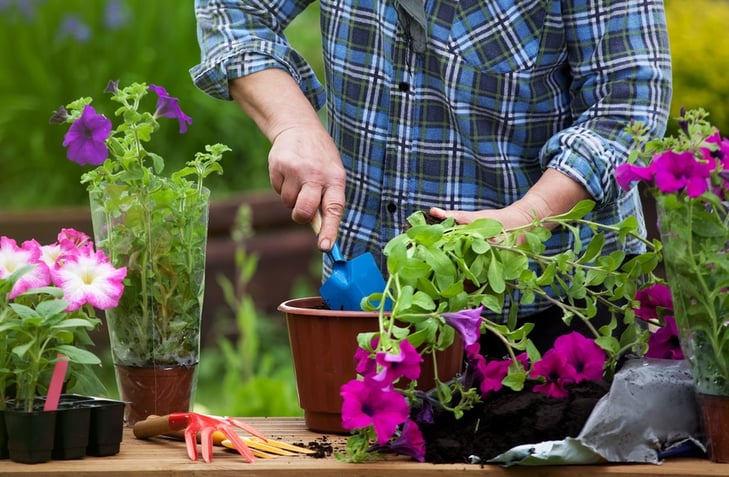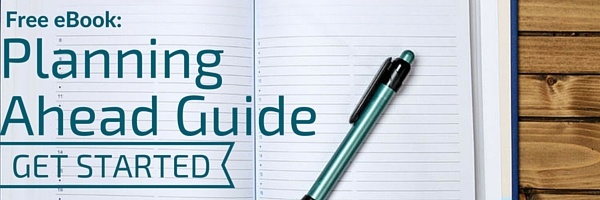 So what happens when a lifelong gardener downsizes, sells his or her home and moves into a retirement community? Must growing green things go by the wayside? It might surprise you to learn that the answer is no, if that retirement home is Deupree House in Cincinnati.
So what happens when a lifelong gardener downsizes, sells his or her home and moves into a retirement community? Must growing green things go by the wayside? It might surprise you to learn that the answer is no, if that retirement home is Deupree House in Cincinnati.
Many of our residents have green thumbs and are keen to continue their growing efforts. Some volunteer to help with landscaping, planting flowers in the spring and fall. Some work plots in our community gardens and individual gardening spots.
Still other use container gardens and window boxes to garden right in their own apartments. Interested in learning how they do it? Here are some tips for starting your own indoor container garden or window box garden.
Assess your space
Some plants need only tiny containers and a little bit of window space to do well. Many annual flowers and herbs can be grown right in their seedling carriers from the nursery, as long as their drainage requirements are met. Others might need to transfer to medium-sized pots as they grow, but will still fit on a window ledge.
Or, you could scatter containers throughout the apartment, using up nook and cranny space. Just make sure that the plants you garden are within easy reach and aren't too heavy to lift (to prevent falls and injuries) and are positioned where they will grow best (see below).
Match up plants' requirements with your available growing area
There are plenty of plants that grow well indoors: flowers, ferns, cacti, herbs and even some fruits and vegetables. The keys to growing them include understanding:
- How much root space they need in the container
- How much drainage they need
- How much and what quality light they need (direct or indirect sunlight, shade, etc.)
- How much water they need and how often they need it
- Which pollination methods work best (for edible plants that require it in order to fruit)
When choosing which plants you want to grow, consider the space you'll have available for indoor gardening. Does your apartment get a lot of light, or is it relatively shady?
You wouldn't, for example, want to grow rosemary (which loves sunlight) if your apartment faces north. North-facing apartments get less sunlight in general, so you'd probably want to grow shade-loving herbs like chives, mint or tarragon. Rosemary would do better in a south-facing apartment.
Also consider the size and full soil-loaded weight of the containers your plants will require. Don’t grow something that would be difficult for you to move (especially if you have arthritis or other mobility issues).
If a plant needs to be pollinated, will you be able to move it outdoors where bees and other pollinating insects can reach it? Or does the plant do well using brush pollination techniques (cherry tomatoes, for example, do better indoors than other tomato varieties, if brush pollination is to be used).
Don't use gardening soil if your plant needs fast drainage. Gardening soil is best suited to outdoor use because it tends to retain a lot of water. But too much water can cause root rot.
Try using pre-mixed potting soil or mix your own. You can mix sand or small gravel into soil to increase the drainage, and add clay or perlite to make the soil hold more water. Research the ideal mix for each plant you intend to grow. If you want to minimize the soil-mixing work, stick to growing plants that all have similar drainage needs.
Apply the same rules to a window box garden
Space is limited in a window box garden, so do your homework on soil and drainage requirements for the plants you want to grow. Also make sure that the window box itself has holes that will allow water to drain efficiently.
Also make sure that you have easy, safe access to your window box garden and that the window you use opens easily. If you are growing in a window a story or more off the ground, make sure you can easily reach it without your upper body having to lean outside.
Deupree House is a gardening-friendly Cincinnati retirement home.
Come out for a tour and see what our resident green thumbs are growing this spring and summer. Whether you're interested in having an indoor container garden, gardening outdoors in your own, designated space or contributing to a community plot, we know you'll enjoy the growing amenities Deupree House has to offer.












